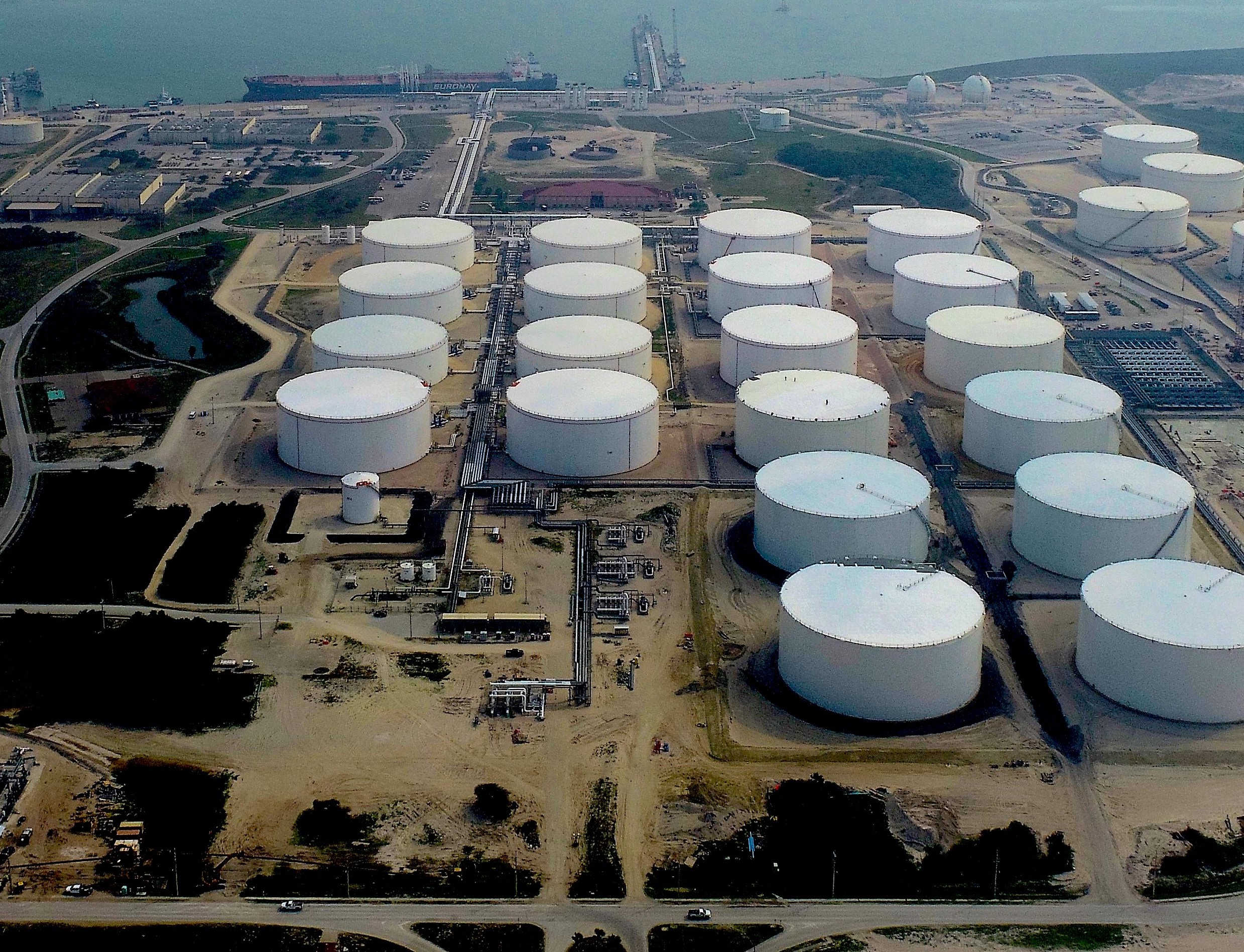Crude Oil Bears Dominate as Market Ignores Bullish Signals
(Reuters) — The response of crude oil markets to a series of developments this week shows how the bearish mindset is dominating the narrative.
News that should be positive for oil prices is largely discounted and ignored, while factors that add to negative sentiment are embraced and reflected in price movements.
Global benchmark Brent futures LCOc1 show this dynamic, with the front-month contract dropping 4.9% on Tuesday to end the session at $73.75 a barrel.
This was the lowest close in nine months and extends a downtrend that has been in place since July 5, when Brent ended at $86.54 a barrel.
The immediate catalyst for the sharp fall on Tuesday were reports that the various parties vying for control in Libya have reached an agreement that may lead to the resumption of crude exports from the North African producer.
Libya's legislative bodies have agreed to appoint a new central bank governor within 30 days after U.N.-sponsored talks, a statement signed by representatives of those bodies said on Tuesday.
Libya's crude exports at major ports were halted on Monday and production curtailed across the country, the latest moves in an ongoing standoff between rival political factions over control of the central bank and oil revenue.
The Libyan National Oil Company has confirmed that actual production has slumped, dropping to little more than 591,000 barrels per day (bpd) as of Aug. 28 from nearly 959,000 bpd on Aug. 26, and as much as 1.28 million bpd on July 20.
This is a real cut to the volume of oil available to global markets, but the price reaction to the news on Monday was at best muted, with Brent actually ending the day slightly lower than the previous close.
But news of a potential deal that is several weeks away, and doesn't restart oil output immediately, is enough to send oil prices down by almost 5%.
That alone shows that the market is currently seizing on bearish news and amplifying it, while discounting any bullish developments.
Tanker Attacks
At the same time the market was choosing to focus on hopes for a deal in Libya rather the reality of lower output, it was also ignoring missile attacks on two crude tankers in the Red Sea, carried out by the Iranian-aligned Houthi group in Yemen.
There is some uncertainty over whether both vessels were targeted and damaged, with the U.S. military saying missiles struck the Saudi-flagged Amjad and the Panama-flagged Blue Lagoon I.
However, the Saudi owners of the Amjad, which is carrying two million barrels of oil, said it was unscathed and continuing its voyage.
Even if the latest attack on shipping was limited in the amount of damage inflicted, it still highlights the ongoing risk the Houthis pose to vessels in the Red Sea, and the potential for more serious incidents definitely exists.
A further development on Monday was news that output by the Organization of the Petroleum Exporting Countries (OPEC) dropped to the lowest since January.
OPEC members produced 26.36 million barrels per day last month, down 340,000 bpd from July, according to a Reuters survey.
Libya was the main factor behind the lower output, declining by 290,000 bpd.
But the lower OPEC production in August, coupled with news that Russia, the main exporter in the wider OPEC+ group, also lowered its output, had zero impact on crude prices.
It's clear that supply concerns aren't a factor in current pricing dynamics, with investors more focused on demand issues, such as weakness in China, the world's biggest oil importer and the country OPEC had expected to deliver the bulk of global demand growth in 2024.
China's August imports are estimated by LSEG Oil Research at 11.02 million bpd, up from July's official customs number of 9.97 million bpd, which was the lowest on a daily basis since September 2022.
But even with the rebound in August imports, it's likely that China's arrivals will remain in negative territory for the first eight months of the year, compared to the same period in 2023.
The question for the crude oil market is whether the focus on bearish news has swung too far. Certainly, it sets up the risk of a short squeeze should something unexpected happen, such as OPEC+ deciding to abandon the planned increases in output from October onwards.
The opinions expressed here are those of the author, a columnist for Reuters.
Related News
Related News

- Kinder Morgan Proposes 290-Mile Gas Pipeline Expansion Spanning Three States
- 1,000-Mile Pipeline Exit Plan by Hope Gas Alarms West Virginia Producers
- Valero Plans to Shut California Refinery, Takes $1.1 Billion Hit
- Three Killed, Two Injured in Accident at LNG Construction Site in Texas
- Boardwalk’s Texas Gas Launches Open Season for 2 Bcf/d Marcellus-to-Louisiana Pipeline Expansion
- New Alternatives for Noise Reduction in Gas Pipelines
- Construction Begins on Ghana's $12 Billion Petroleum Hub, But Not Without Doubts
- DOE Considers Cutting Over $1.2 Billion in Carbon Capture Project Funding
- Valero Plans to Shut California Refinery, Takes $1.1 Billion Hit
- Newsom Seeks to Aid Struggling Refiners Following Valero’s California Exit





Comments